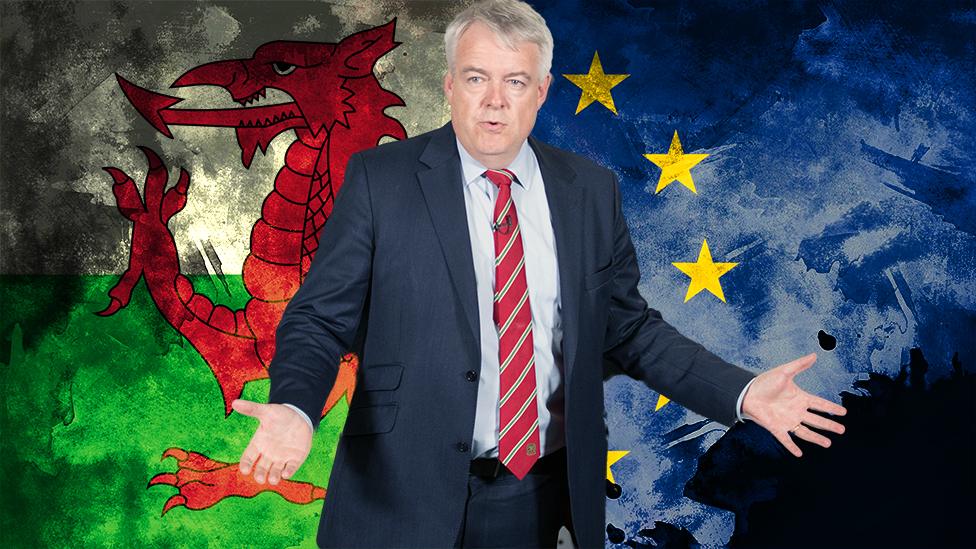Brexit could mean farming subsidies end, Carwyn Jones claims
- Published
Carwyn Jones: "I am not optimistic there will be any money post-2020"
The first minister has said his "greatest fear" over Brexit is that farming and economic subsidies will disappear when the UK leaves the EU.
The poorest areas of Wales are sharing more than £2bn aid between 2014 and 2020, while more than £250m a year goes directly to farmers.
Carwyn Jones told AMs it was possible there would be no replacement by the UK government of the payments after 2020.
The prime minister is due to start the two-year process for Brexit tomorrow.
During First Minister's Questions, Mr Jones responded to Plaid Cymru leader Leanne Wood, who called on the UK government to replace lost EU aid, saying: "Wales cannot afford to pay the price for a hard Brexit."
The first minister said: "I am not optimistic there will be any money post-2020.
"I am not convinced there will be any money to replace structural funds, and I am becoming convinced there will not be any money to pay farming subsidies.
"More and more we are hearing that the Common Agricultural Policy is a problem. We heard it from Iain Duncan Smith - that means farming subsidies could well disappear.
"That's my greatest fear. We know what that would mean for the economy of rural Wales."
Earlier, Ms Wood issued a list of demands for Wales, as Theresa May prepares to trigger Brexit negotiations on Wednesday.
They include "continued participation" in the single market, external, further devolution, and for the rights of all EU nationals living in Wales to be guaranteed.
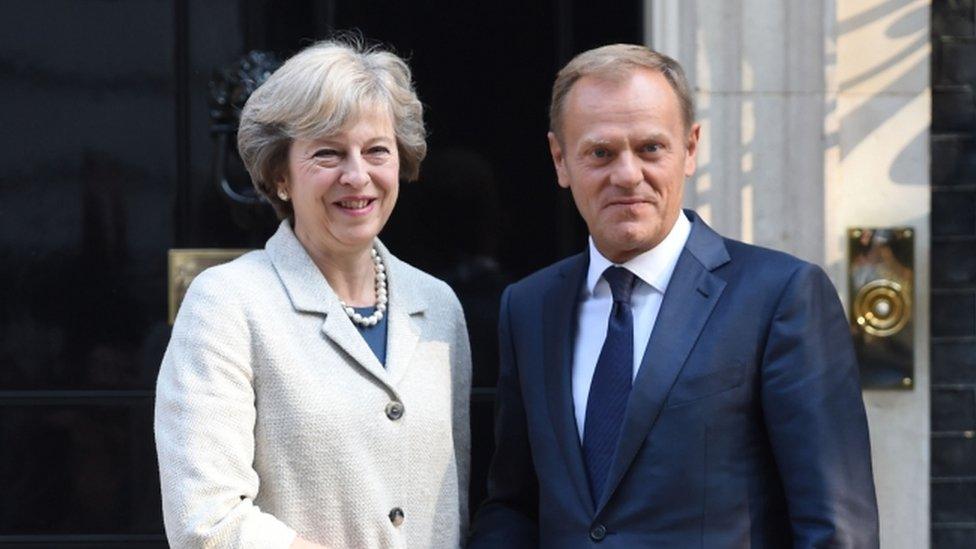
Theresa May met European Council President Donald Tusk in Downing Street last year
Ms Wood said: "Our alternative demands for the Article 50 letter reflect not only what is important to Wales and everyone who lives here, but the promises that were made to voters by the Vote Leave campaign.
"They offer the UK Prime Minister a list of sensible and moderate options that do not go against the mandate to leave the EU but protect our vital economic links with the continent and reflect the interests of Wales and all who live here."
A Welsh Conservative spokesman said: "The British public voted to leave the European Union and that vote was endorsed by the people of Wales, giving the Westminster Government a mandate to negotiate on behalf of the whole of the UK.
"Leanne Wood purports to be acting in the national interest, but there is an inherent irony in her demands to retain access to the single market and for the maintenance of current funding levels - whilst simultaneously campaigning for independence from the UK, which would see the taps turned off for our public services and break up a vital single market."
Welsh Labour MEP Derek Vaughan said the UK government had "backed itself into a corner by setting conditions which indicate we are heading for hard Brexit or no deal".
This, he warned, would be "catastrophic" for Wales.
UKIP published "six key tests to prove Brexit means Exit, external", including a requirement that "Parliament must resume its supremacy of law-making with no impediments, qualifications or restrictions on its future actions".
The party called for the UK to have full control of its immigration, asylum and border control policies and the seas around its coast, insisting there should be no final settlement payment to the EU or any ongoing payments.
- Published28 March 2017
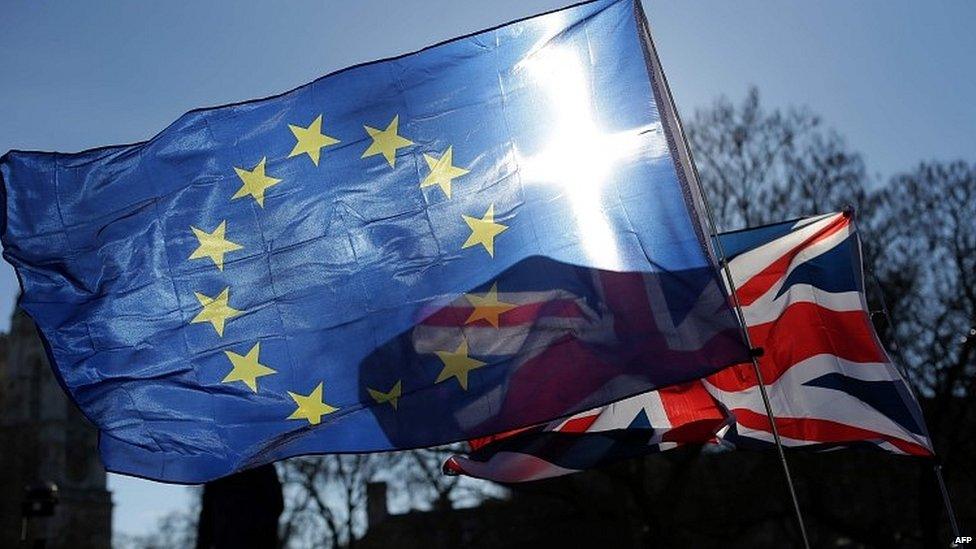
- Published27 March 2017
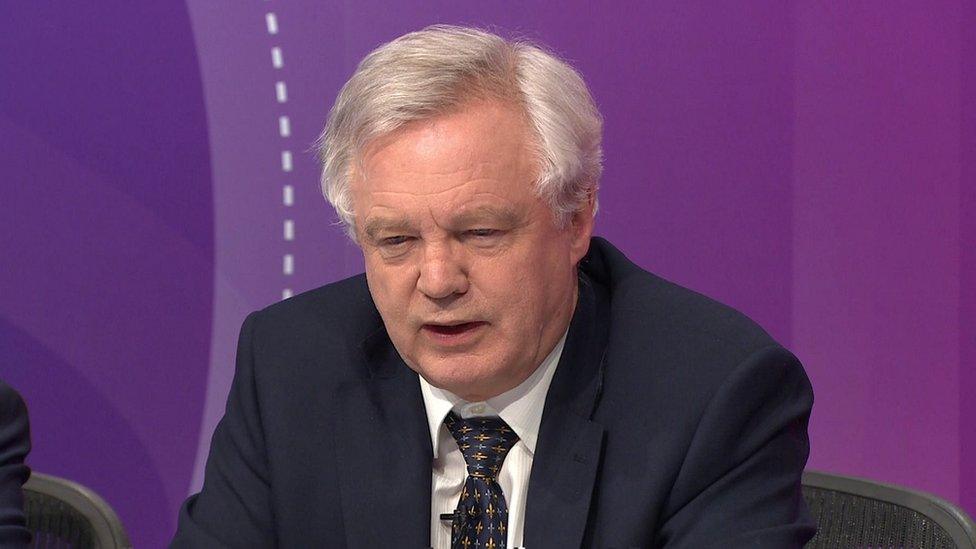
- Published27 March 2017
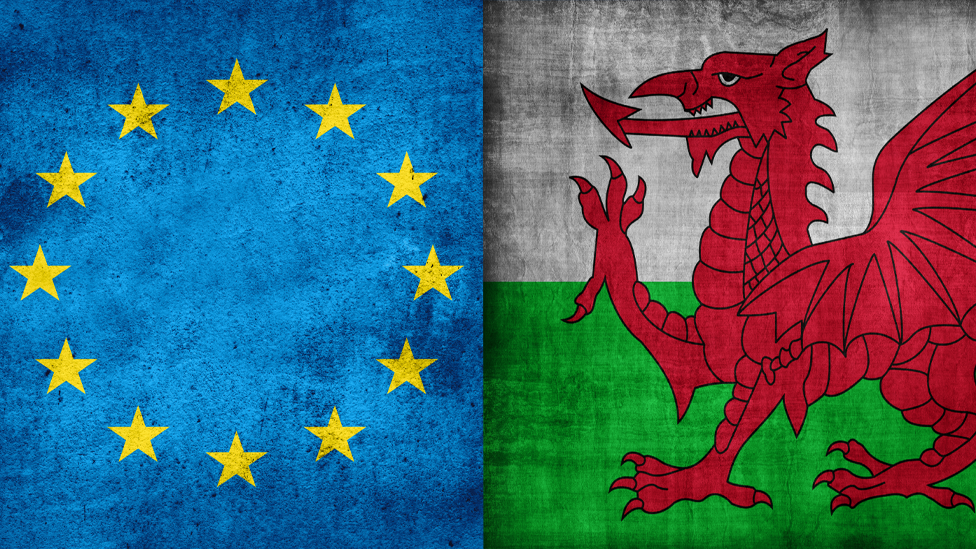
- Published16 February 2017
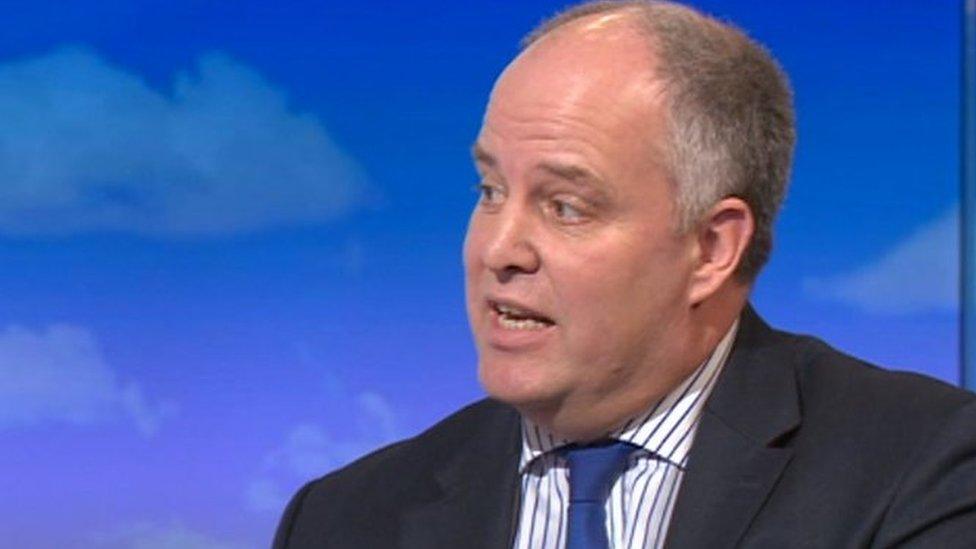
- Published27 January 2017
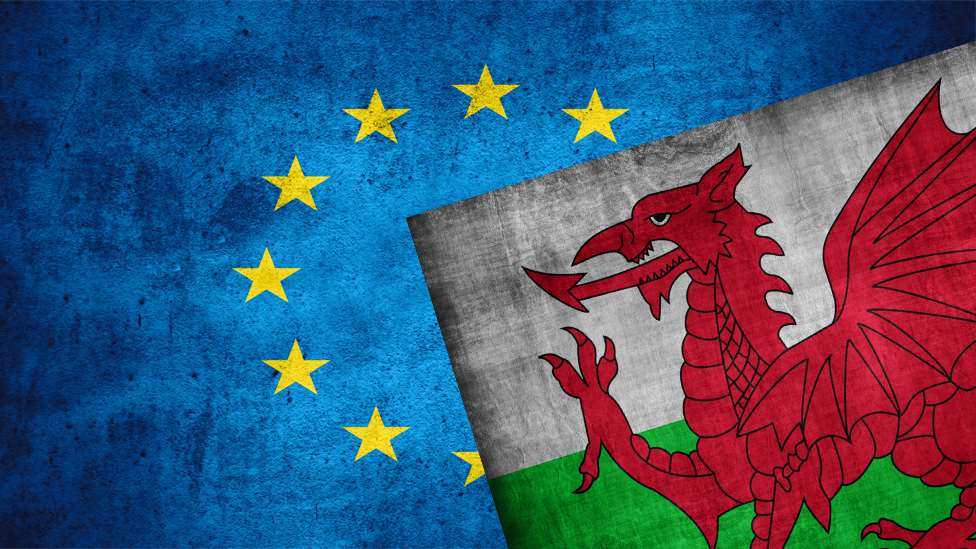
- Published23 January 2017
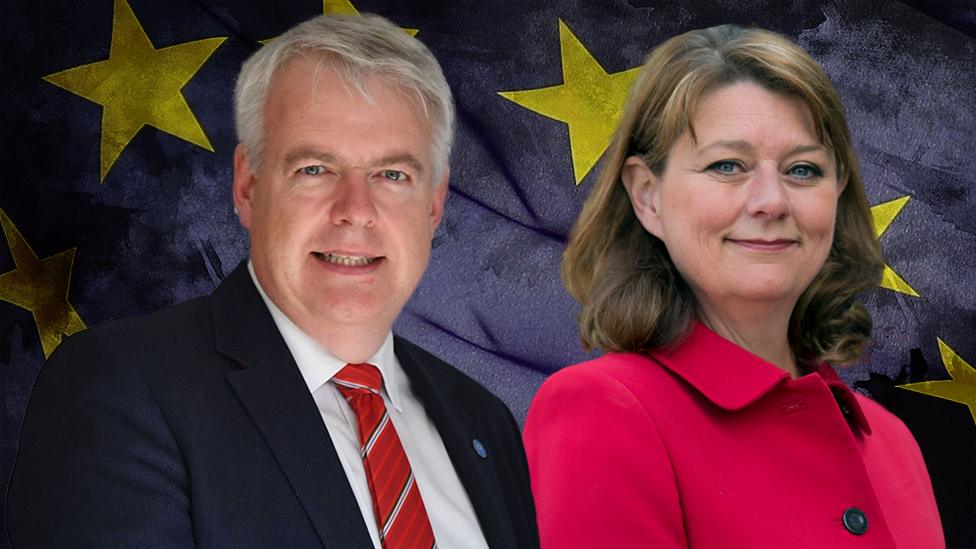
- Published11 December 2016
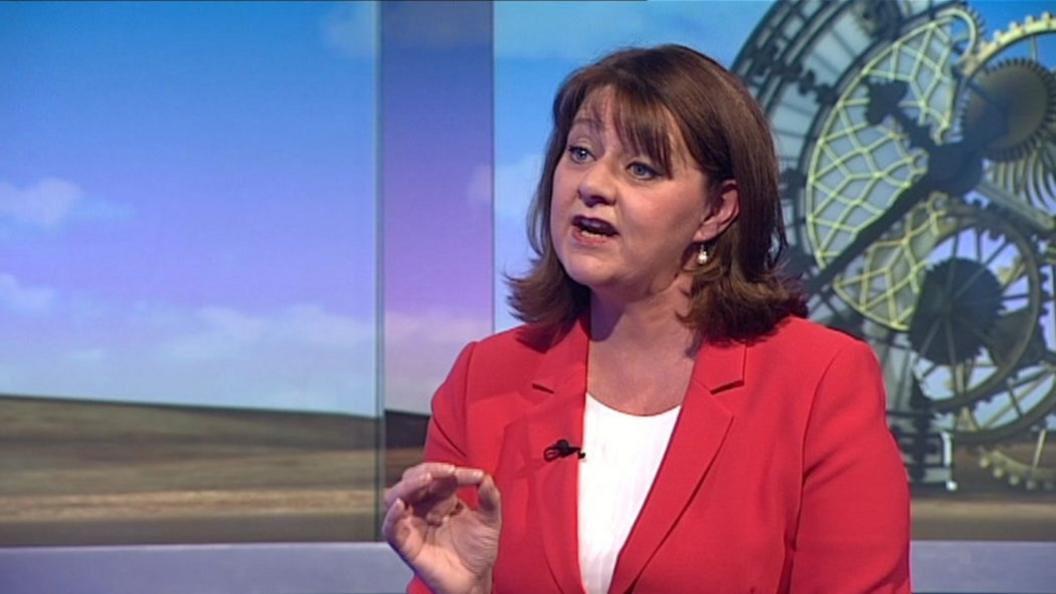
- Published27 November 2016
